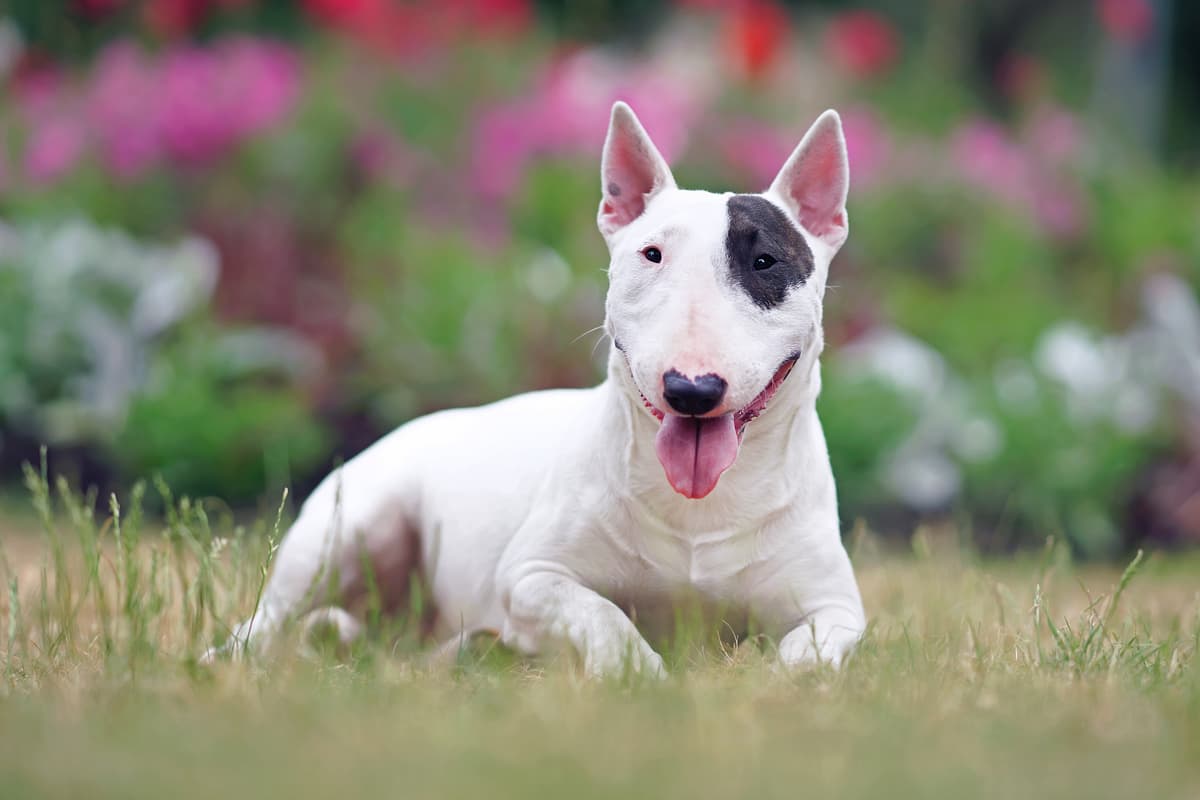Bull Terrier vs English Bulldog
Discover the differences between Bull Terrier and English Bulldog to make the best choice for your situation.
Try different breeds

Bull Terrier
Playful, energetic, and unmistakable with a unique egg-shaped head, this breed thrives as an affectionate companion. Loyal and spirited, Bull Terriers bring laughter and fun to any home.

English Bulldog
Stocky, courageous, and affectionate, this breed charms with its wrinkled face and calm nature. Loyal and gentle, it thrives as a loving family companion.
Quick comparison
Medium
24–32 kg
Short, dense
11–13 years
20–28 kg
High energy
Medium
23–25 kg
Short, smooth
8–10 years
18–23 kg
Low activity needs
Personality & behavior
Compare the personality traits and behavioral characteristics of both breeds.
Bull Terrier
Affectionate with people, can be stubborn with dogs
Learns commands with patience and consistency
Very active, needs regular exercise and play
Loves interactive games and entertaining activities
Adjusts to change but prefers familiar routines
English Bulldog
Affectionate and gentle with family and children
Learns basic commands with some patience
Prefers lounging over vigorous physical activity
Enjoys play but tires fairly quickly
Adjusts well to most living environments
Care needs
Exercise, grooming, and daily care requirements
Bull Terrier
Deafness, skin allergies
English Bulldog
Brachycephalic syndrome, skin fold infections
Suitability
How well each breed fits different living situations and families
Bull Terrier
Challenging for Beginners
Needs experienced handling and consistent training to prevent stubborn behavior
Needs Space
Can adapt to apartments but requires daily exercise and mental stimulation
Excellent Match
Thrives in active homes with plenty of play and exercise opportunities
Supervised Only
Can be boisterous and may unintentionally knock over small children
Potential Issues
May show aggression toward other pets without proper socialization
Not Recommended
Prone to boredom and destructive behavior if left alone for long periods
English Bulldog
Good option
Easygoing, low-maintenance nature suits owners with limited dog experience
Excellent fit
Moderate exercise needs and calm demeanor work well in small living spaces
Not ideal
Low stamina and breathing issues make them unsuited for high-activity lifestyles
Very suitable
Gentle, patient, and tolerant with young children when properly socialized
Usually compatible
Generally sociable but may need guidance with other pets, especially dogs
Not recommended
They struggle with long periods alone and are prone to separation anxiety
Breed strengths
What each breed excels at and their best qualities
Bull Terrier
- Loyal and devoted to family
- High energy and playful nature
- Strong and muscular build
- Generally healthy with few genetic issues
- Good watchdog instincts
English Bulldog
- Affectionate with family members
- Generally good with children
- Low exercise requirements
- Minimal grooming needs
- Adaptable to apartment living
Challenges & considerations
Potential challenges and considerations for each breed
Bull Terrier
- Prone to stubbornness during training
- Needs consistent socialization with other dogs
- Can develop separation anxiety if left alone
- Requires regular physical and mental exercise
- Tendency toward skin allergies and sensitivities
English Bulldog
- Prone to respiratory problems
- High risk of overheating
- Susceptible to skin infections
- Can be stubborn during training
- Tends to drool frequently
Ready to choose your perfect breed?
Learn more about each breed or compare other breeds to find the perfect match for your lifestyle.
Discover more helpful tools
Make use of our other free tools to get the most out of your pet experience
